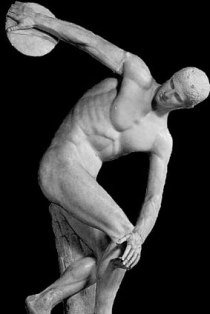Old Wisdom on Daily Meal Frequency,
Why are you Eating so much?

Guest Writer: Mike O’Donnell
If you have been following along with my daily quotes on Facebook, you probably have been noticing lately occasional quotes from “slightly older” texts.
I have been recently going through old books online, and it amazes me how much simple wisdom and insight has been said so long ago…yet seems lost in today’s information overload.
It is almost like 100+ years ago people were saying what we needed to do to stay out of trouble, but we ignored it and just went on our merry way (and are now paying for it).
For example, here are some good quotes from the book entitled “The Hygienic System: Orthotrophy” by Dr Herbert M. Shelton, originally published in 1935:
Dr. Felix Oswald says that “during the zenith period of Grecian and Roman civilization monogamy was not as firmly established as the rule that a health-loving man should content himself with one meal a day, and never eat till he had leisure to digest, i.e., not till the day’s work was wholly done. For more than a thousand years the one meal plan was the established rule among the civilized nations inhabiting the coast-lands of the Mediterranean. The evening repast–call it supper or dinner–was a kind of domestic festival, the reward of the day’s toil, an enjoyment which rich and poor refrained from marring by premature gratifications of their appetites.”
How many people today use a meal as a reward for a hard day’s work? How many use it as a “festival” to enjoy with friends and/or family? How many take the time after the meal to relax and let the body digest what they have eaten?
Here’s another quote from the same book:
At the period of their greatest power, the Greeks and Romans ate only one meal a day. Dr. Oswald says: “For more than a thousand years the one-meal system was the rule in two countries that could raise armies of men every one of whom would have made his fortune as a modern athlete–men who marched for days under a load of iron (besides clothes and provisions) that would stagger a modern porter.” He also says, “The Romans of the Republican age broke their fast with a biscuit and a fig or two, and took their principle meal in the cool of the evening.” Among the many things that have been offered as an explanation for their physical, mental and moral decline has been their sensuous indulgence in food which came with power and riches.
So in the history of some of the greatest academic and athletic cultures, they ate but only
one "main" meal per day! In terms of "meal" in the quotes above, this was most likely referring to their larger “cooked” feast later in the day.
To be fair, I wouldn't personally say they ate "one meal" as it really doesn't fully describe their full daily eating habits (as you will see below in another quote). It really was more like 2 meals. The later meal being the main and larger one, but they most likely also had an earlier smaller "meal" at some point of bread, fruit (like fig), cheese, olives or local grains mashed up into a porridge.
"But what about breakfast the most important meal of the day?" (you may be thinking)
Well not sure who came up with the “most important meal” line (except maybe some of the breakfast cereal companies who want to sell you more cereal)….but “breakfast” as a meal is more a historical concept based on economic prosperity, not nutritional requirements.
Salzman’s English Life in the Middle Ages, tells us that: “Breakfast as a regular meal is little heard of, though probably most men started the day with a draught of ale and some bread.” ”Barely two centuries ago,” says Major Austin, “the first meal of the day in England was taken about noon. Breakfast was an unrecognized meal and it originated in the practice of ladies taking an early dish of chocolate before rising. The ancient Greeks–the finest of people, physically and mentally, that ever lived–ate but two meals a day. The same was true of the ancient Hebrews and it is the custom of some of the best fighting races in India today.” The adoption of three meals a day, in England, came along with the increasing prosperity of that country.
So what we find is some of the
most revered past civilizations full of healthy, athletic, and intelligent people only eating enough to nourish their bodies and not having “the most important meal of the day” (well by modern standards that is).
Then I look around today and see a world full of chronically tired, sick, rapidly ageing, overweight and mentally clouded persons who are told to eat more often….how is this reflecting any wisdom from the past?
So whether you want to eat 2x, 3x or 10x a day…the choice is yours to make. Just take time to ask yourself why you really eat the way you do and see if there is another way which might be better for you (that is if you are not already full of daily energy, health, strength and mental clarity).
For me….I like this old 16th century proverb to sum it all up:
To rise at six, dine at ten, sup at six and go to bed at ten, makes a man live ten times ten.